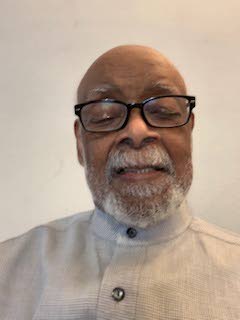The UWI issue

JAMES MILLETTE
I WAS not aware that the Sir Hilary Beckles/Robert Bermudez issue was still bubbling along. But if two newspapers in the Caricom region, the Gleaner and the Express, are finding the time in recent days to write about the possibility of a "coup" at the University of the West Indies, something is probably afoot.
It would not surprise me if there is. The university is now in its 73rd year of existence and has never had a "coup" before, so why not now? The circumstances that would allow for such a caper have been steadily building over the years. There was a time when such a possibility was quite unimaginable.
The first chancellor of the UWI, originally the University College of the West Indies, was a princess, Alice, Countess of Athlone, granddaughter of Queen Victoria and wife of Lord Athlone, sometime governor-general of Canada. She reigned but did not rule and was followed by other luminaries who were quite content to do the same. It appears that the present chancellor is unwilling, or unable, or maybe not minded to do the same.
I have been sure, for many years now that this time would come. It seems to be coming everywhere. Democracy is a bitter pill to swallow and, as the wily sage Yogi Berra once said, "In theory there is no difference between theory and practice, but in practice there is." It is one thing to be democratic in an era of limited suffrage and another to be democratic when the hoi polloi have the vote, with all that that implies.
With respect to the so-called "coup," the constitutional expectation is very simple. The theory is, in the British political construct, that the sovereign reigns and the ruler rules. That's what governors and prime ministers do on a daily basis; but they both have to agree on this. Otherwise it could be messy. As difficult as it could be on occasion, they both have to stick to their guns. But the paradigm is clear. The chancellor is a ceremonial official, decorative on special occasions. The vice-chancellor is the chief executive officer, as businessmen would say. For reasons which can only be supposed, they couldn't play the roles as assigned. My supposition is that two imponderables have intervened.
First of all, the UWI has succeeded well beyond expectations. It's commonplace these days to recognise the university as the leading English-language institution of higher education in the Caribbean and as one of the top university institutions internationally. It's at the top of its game.
In the 1960s, as West Indian cricket vaulted to the top of the international competition, the question of the leadership of West Indian cricket teams came to the fore. Nothing that I can say can eclipse a reading, or a re-reading, of CLR James's Beyond a Boundary. Haven't read it? Read it now. Read it already? Read it again.
We've been here before; only then the tables were turned. The question then was: why were talented black men standing aside so that less talented white people should captain the West Indies teams? Or, why was Trestrail opening the batting and not Ganteaume?
The question now is whether the UWI is too successful an institution to be left in the hands of the black intelligentsia.
The other imponderable is the reparation question. Prof Beckles is not only the vice-chancellor of the UWI, but also the leading advocate, regionally and internationally, for reparations for the iniquities of the slave trade and slavery. Have you read Britain's Black Debt? If you haven't, now is the time. Not only is he an advocate, but he is also the outstandingly successful champion of the struggle to wrest the ill-gotten gains of slavery and the slave trade from the hands of those who have profited from those atrocities.
Blue-ribbon universities, like the University of Glasgow in Scotland and Georgetown University in Washington, DC, have already registered support for and committed themselves to meaningful, material support for the reparations initiative. The significant flow of funds related to the reparations project is already being counted in the tens of millions of dollars. Cherchez la monnaie!
For this imponderable, consider the plight of Bermudez. A prominent member of the TT business elite, he finds himself in the surprising situation of presiding over the UWI at a time when its signal project is aimed at separating the beneficiaries of the slave trade and slavery, no matter how many decades removed, from the ill-gotten gains garnered in the slave period.
It's an interesting speculation to imagine a conversation between the chancellor and the vice-chancellor on the progress of the university's signature campaign of the early 21st century. Even more interestng would be the spectacle of the chancellor chairing a meeting of the University Council at which a report is made about the reparations project.
And what about those meetings with Caricom, the leadership of which has an expressed commitment to support the reparations issue?
There are lots of contradictions here. Time will tell how they will be resolved.
James Millette is an emeritus professor of Oberlin College


Comments
"The UWI issue"